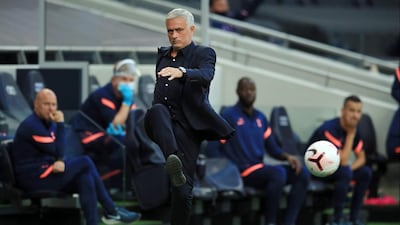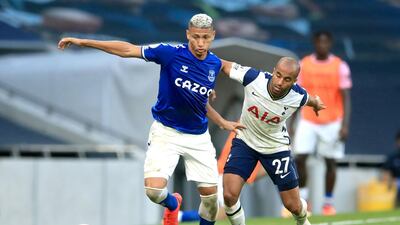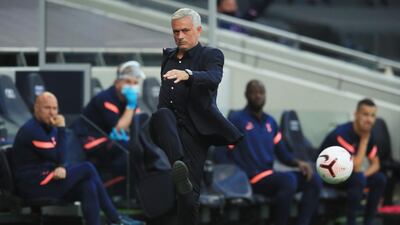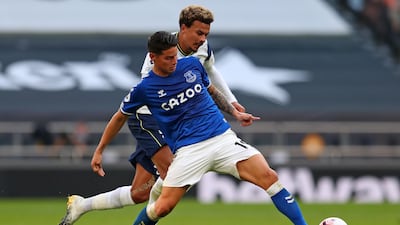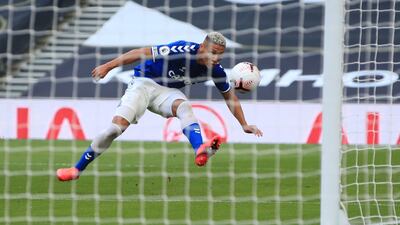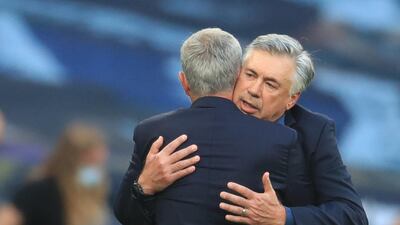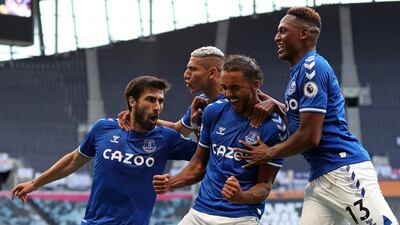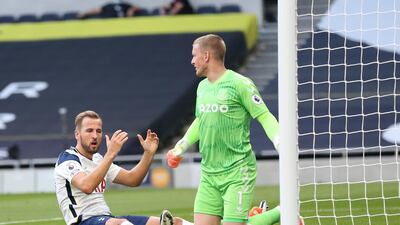If second-season syndrome afflicted some, Jose Mourinho’s variant of it only enhanced his reputation.
He won the league title in his second season at Porto, Chelsea, Inter Milan, Real Madrid and Chelsea again, twice adding the Champions League for good measure.
His second season at Tottenham began with a 90-minute illustration of how to kill any summer optimism.
Lest any was lingering after defeat to Everton, Mourinho branded his players “lazy” and said they had the wrong state of mind. Perhaps, he could say, this does not qualify as his second season in charge.
The only comparable situation in his career came at Porto when, after a January appointment, he won the league and the Uefa Cup in his second campaign, but first full season.
The theme of his career has been that, once his players improve from his methods and he uses a famously analytical brain to diagnose what his side needs and strengthens accordingly, glory follows.
Yet there is a second, less flattering theme: that as Mourinho strays further from his prime, the highs are not as high and things unravel quicker.
His second season at Manchester United did not yield the title. His mood soured part way through it, spiralling towards a sacking the following December.
Tottenham finished last season with 14 points from a possible 18 so one game, however wretched they were against Everton, represents too small a sample size to definitely say ambitions will go unrealised this season. But it was nevertheless an awful start.
A recurring feature of Mourinho’s rhetoric is his capacity to blame others: the fault always lies with them for failing to implement his perfect plans.
__________________________________________________
Player ratings from Spurs 0 Everton 1
__________________________________________________
A regular tactical issue is Mourinho's struggle to adapt to the times. Pressing is the prevailing theory and Mourinho's awareness of his need to adapt is apparent in his frequent mentions of it in the All Or Nothing documentary. Knowing its importance and knowing how to implement it are separate issues, however.
The “lazy pressure” Mourinho criticised is supported by the statistics: of the 12 teams who played over the weekend, Spurs ranked 12th for successful pressures, tackles, blocks and interceptions. But if Tottenham felt slow and uninspired, it was not the first time. The same could also be said of his United, especially in his last year.
The half-time withdrawal of Dele Alli, which Mourinho admitted was tactical, felt symbolic and not merely because a No 10 is often supposed to be his side’s most creative player.
Instead, he was removed because, the Portuguese said, “we need more creation.” Alli was a flagship success of Mourinho’s first few weeks; with one league goal and assist since January, that effect has worn off.
__________________________________________________
Gallery from Spurs v Everton
__________________________________________________
Mourinho liked to cite the table from his time in charge, showing Spurs fourth in two-thirds of last season, as an endorsement.
Yet the fact they only ranked eighth expected goals showed that fine finishing compensated for a lack of creativity. Harry Kane and Heung-Min Son’s prowess in front of goal are assets, but Mourinho is yet to resolve the question of their supply line.
He was unfortunate to be missing his best technician, Giovani Lo Celso, on Sunday but the fact Pierre-Emile Hojbjerg had three central-midfield sidekicks – in first Harry Winks, then Moussa Sissoko and finally Tanguy Ndombele – shows Mourinho, a manager famed for his decisiveness, is still experimenting with options.
Ndombele, the club record buy, is the one he trusts least but his Tottenham have played in straight lines too often. That predictability does not promise to offer a route into the top four.
For a decade, though, a second-season Mourinho offered a different kind of certainty: a guarantee of success.
